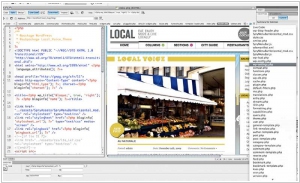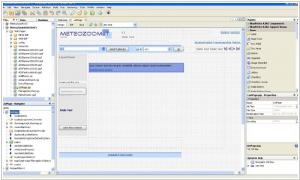Adobe Dreamweaver vs NetBeans
May 22, 2023 | Author: Michael Stromann
Adobe Dreamweaver and NetBeans are two popular software tools used for web development, but they have different focuses and features.
Adobe Dreamweaver is primarily a visual web development tool that provides a user-friendly interface for designing and coding websites. It offers a wide range of features for creating responsive layouts, managing CSS styles, and visually designing web pages. Dreamweaver also has built-in support for Adobe Creative Cloud, allowing seamless integration with other Adobe software like Photoshop and Illustrator. It is often preferred by designers and developers who prefer a visual approach to web development.
NetBeans, on the other hand, is a powerful integrated development environment (IDE) primarily used for Java development, but it also supports other programming languages like HTML, CSS, JavaScript, and PHP. NetBeans provides a robust set of tools for coding, debugging, and testing applications. It offers advanced features such as code completion, refactoring, version control integration, and support for multiple frameworks and libraries. NetBeans is often favored by developers who require a versatile IDE for various programming languages and projects.
See also: Top 10 IDE Software
Adobe Dreamweaver is primarily a visual web development tool that provides a user-friendly interface for designing and coding websites. It offers a wide range of features for creating responsive layouts, managing CSS styles, and visually designing web pages. Dreamweaver also has built-in support for Adobe Creative Cloud, allowing seamless integration with other Adobe software like Photoshop and Illustrator. It is often preferred by designers and developers who prefer a visual approach to web development.
NetBeans, on the other hand, is a powerful integrated development environment (IDE) primarily used for Java development, but it also supports other programming languages like HTML, CSS, JavaScript, and PHP. NetBeans provides a robust set of tools for coding, debugging, and testing applications. It offers advanced features such as code completion, refactoring, version control integration, and support for multiple frameworks and libraries. NetBeans is often favored by developers who require a versatile IDE for various programming languages and projects.
See also: Top 10 IDE Software




